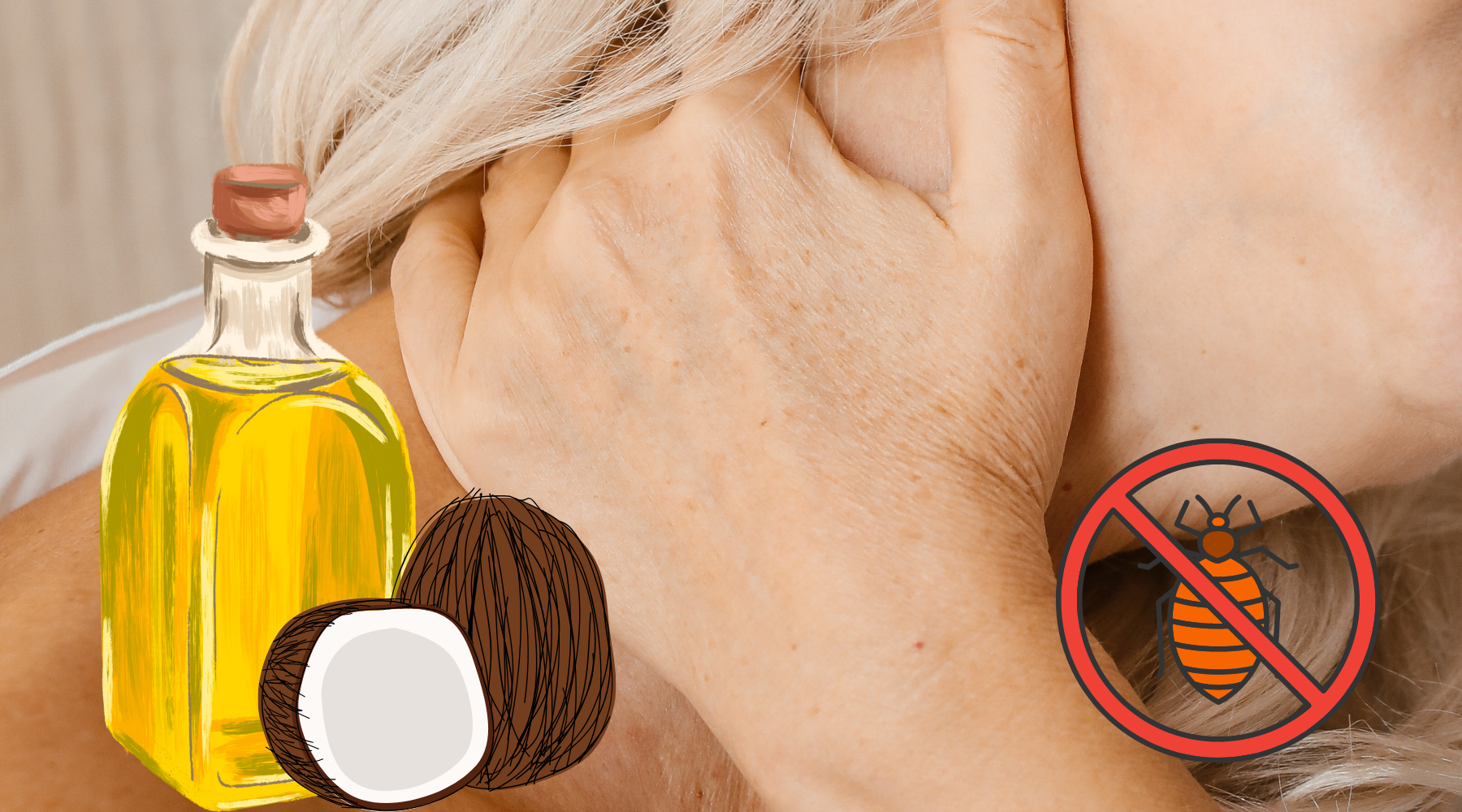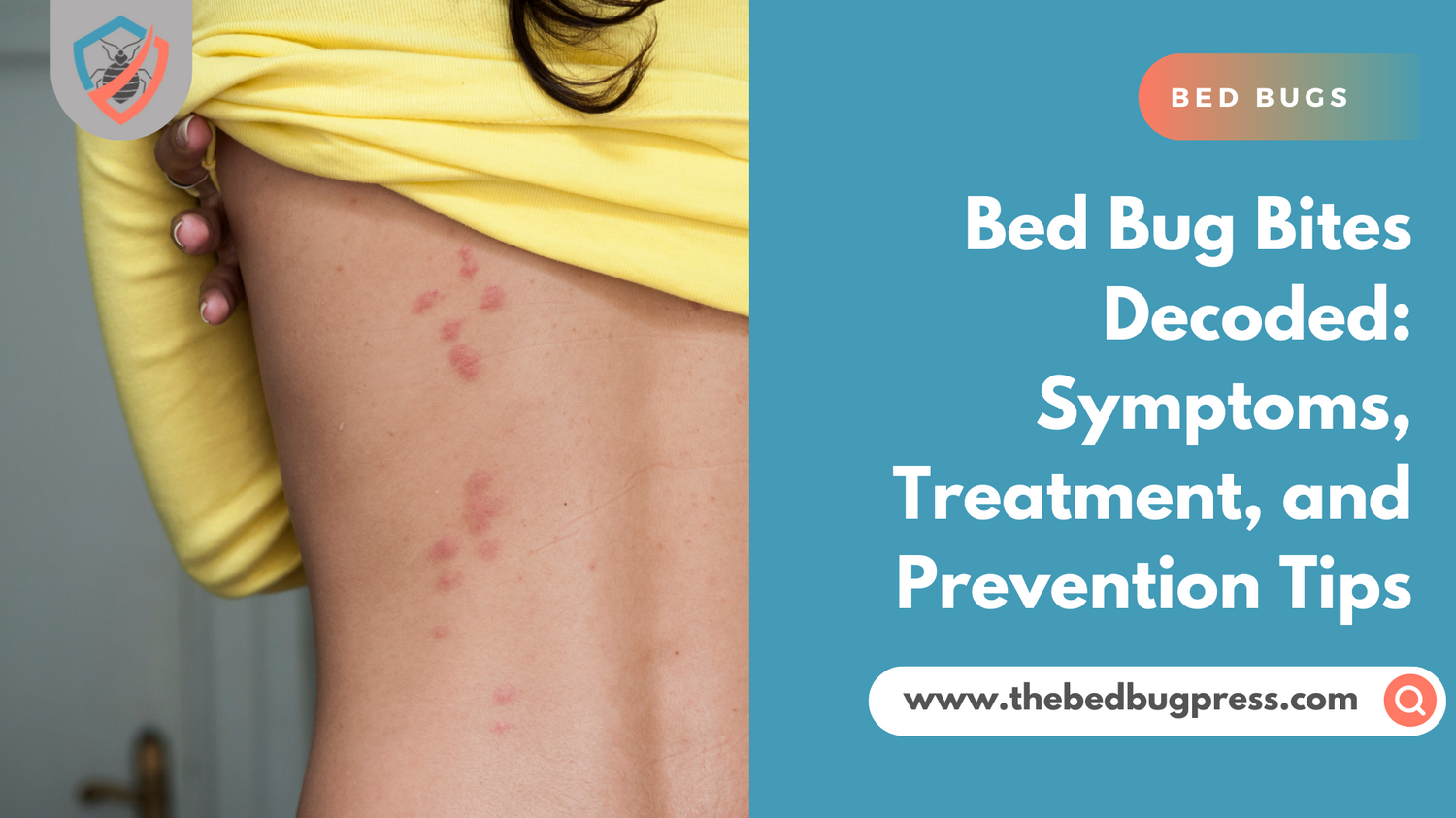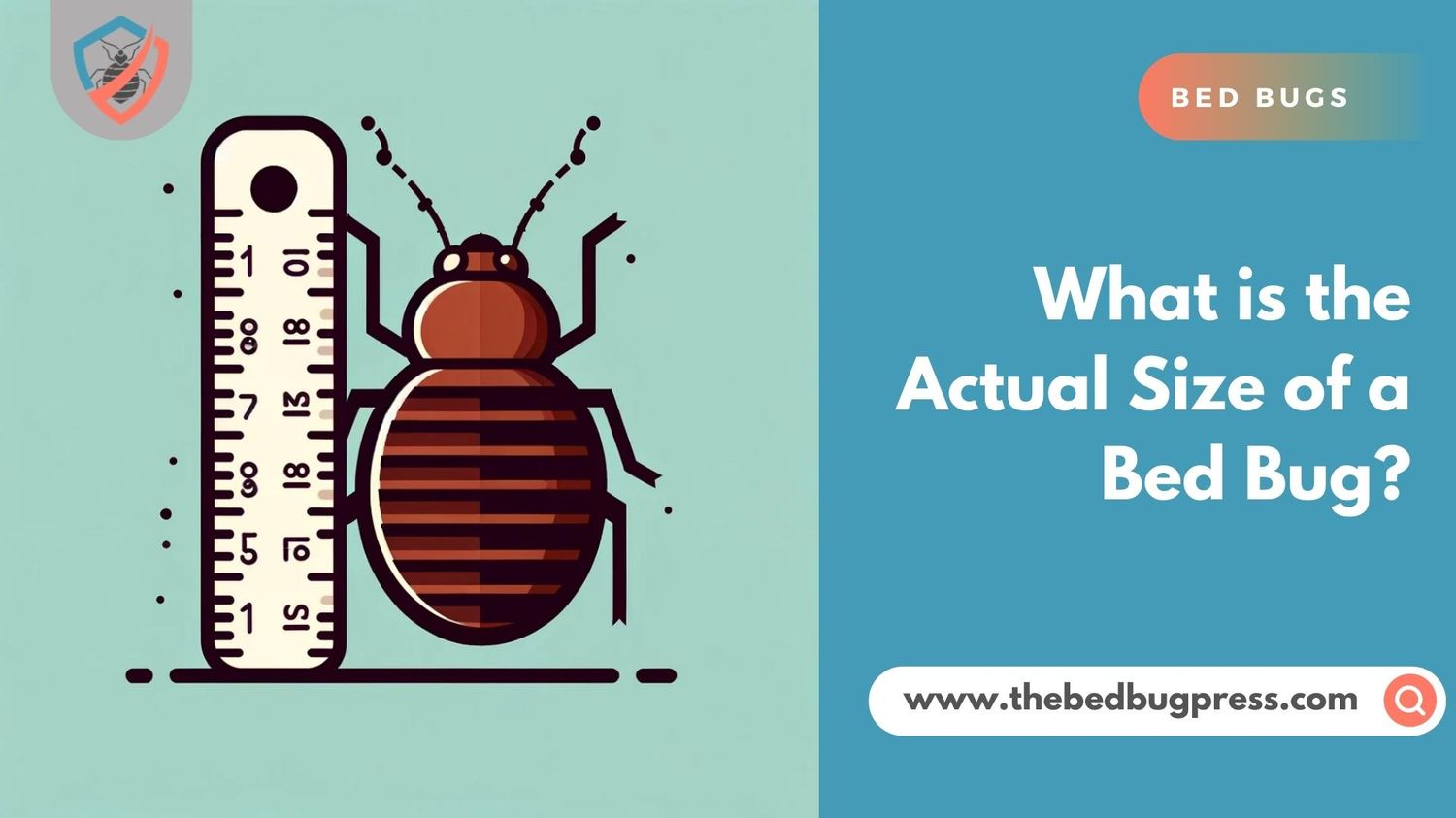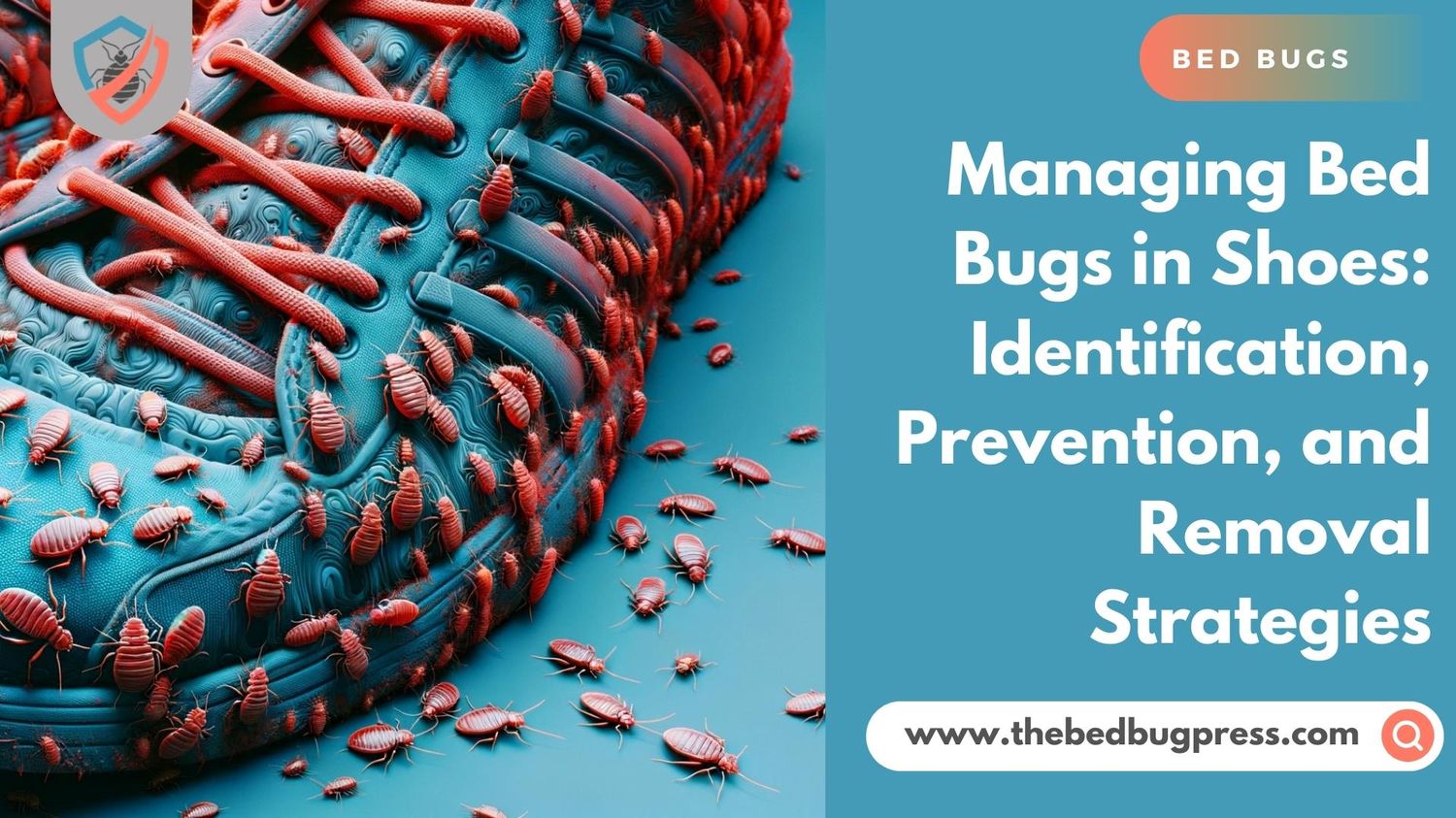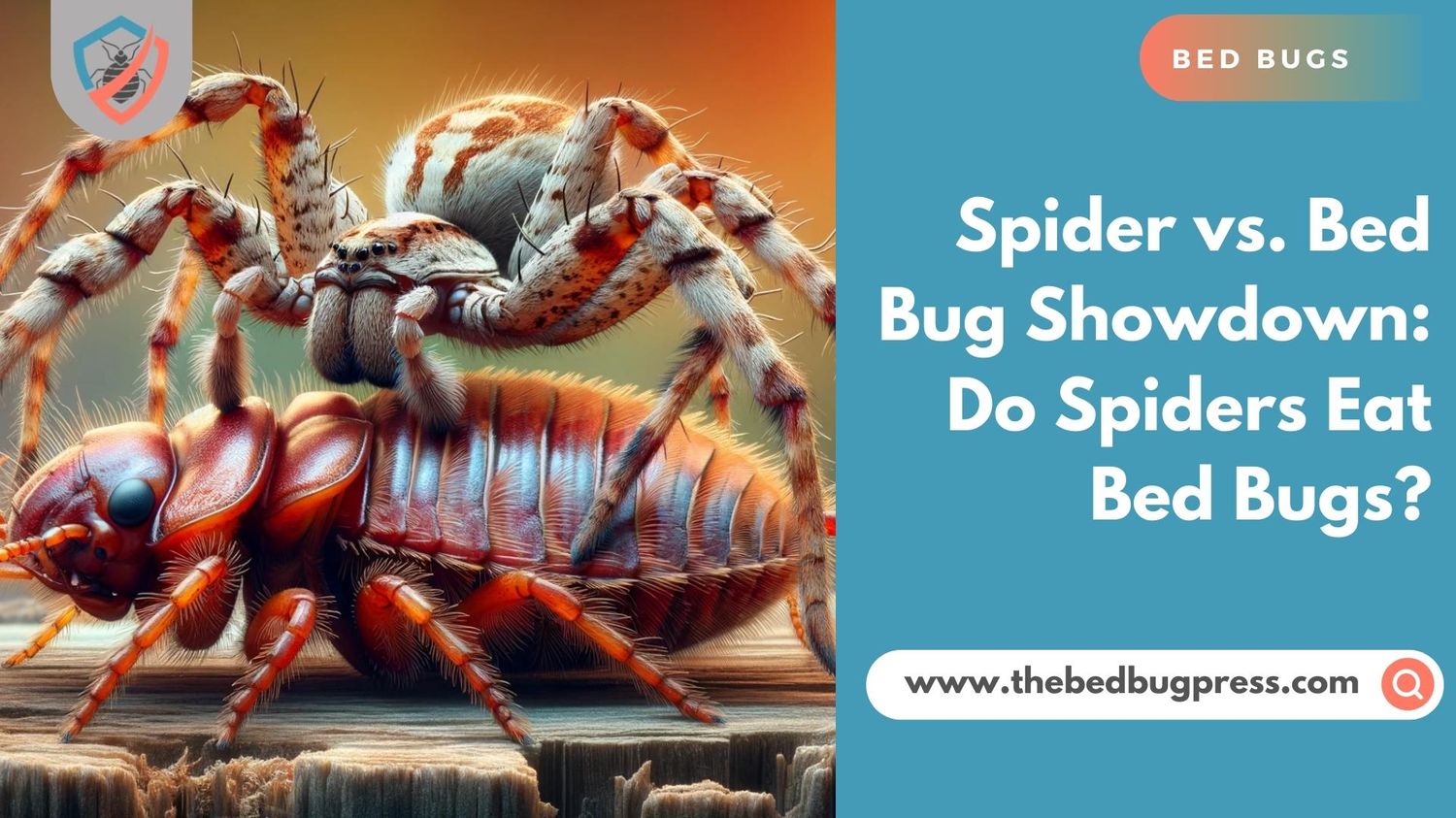Many homeowners have begun to experiment with natural solutions for their bed bug problems. One possible solution that has gained a lot of attention is coconut oil. Read on to know if coconut oil can successfully keep bed bugs away.
For those considering using coconut oil as a natural remedy for bed bug infestations, it is important to understand how effective it can potentially be. While some home remedies have a proven track record of successfully keeping bed bugs away, others may have limited or no effect.
We will look into the scientific evidence and anecdotal accounts to better understand how successful coconut oil might be in repelling bed bugs.
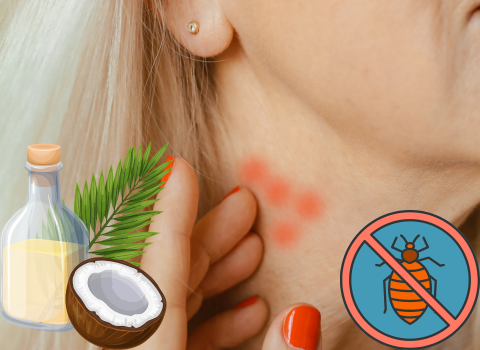
Can Coconut Oil Prevent Bed Bugs from Biting?
While some essential oils have been found to be effective at repelling bed bugs, the evidence for coconut oil is not as clear-cut. Studies have shown that while coconut oil may have some properties that can repel bedbugs and inhibit their attraction, its efficacy as a repellent on its own is questionable.
It is also important to note that even if the coconut oil does succeed in repelling bed bugs, it may still bite if they come into contact with the person using it. To maximize the protective effects of coconut oil against the bed bugs bite or bug bites, it should be used in combination with other natural solutions such as garlic or lavender oil.
Do Coconut Oil Compounds Deter Bed Bugs More Than Deet?
While coconut oil is often touted as a natural option for a pest repellent, the research shows that compounds found in Deet may be more effective. Studies have found that Deet has greater repellency against certain insects than those derived from coconut oil and other essential oils.
In particular, Deet was found to be significantly more effective at repelling mosquitoes than coconut oil in one study, with 3 hours of protection versus 1 hour, respectively. That said, it’s important to note the potential risks of using Deet and to carefully follow the instructions for use.
Research has shown that coconut oil compounds can be more effective than synthetic options, such as Deet, at repelling certain types of insects. A study found that the coconut oil compound was able to repel flies with a 95% success rate, compared to 50% for the Deet option.
It also successfully repelled ticks and bed bugs for two weeks, while Deet only had three-day effectiveness. However, it was noted in the study that it takes a greater acid concentration from the oil to keep adult mosquitoes away when compared to Deet.
While there are currently no commercial products utilizing these compounds as ingredients yet, researchers are hopeful that this will change in the near future. Coconut oil fatty acids are becoming increasingly popular due to their non-toxic nature and are already being found in many food and cosmetic products.
DIY Coconut Oil Bug Repellent – How to Make It at Home
Creating plant-based repellents and your own natural bug repellent at home can be as simple as using coconut oil! Coconut oil has been found to be effective but not as effective as other synthetic repellents compounds like Deet at repelling certain types of insects, such as flies, ticks, and bed bugs.
Here’s how to make a coconut oil-based bug repellent at home:
Start with 100ml of coconut oil and place it in a heatproof container.
Place the container over boiling water until the oil melts. Once melted, add a few drops of essential oils to the mixture (for an extra layer of protection). Lavender, peppermint, rosemary, and lemongrass are all good options to consider.
Let the mixture cool down before transferring it into a spray bottle or roll-on applicator for easy use.
When applying your homemade bug repellent, make sure to apply liberally on exposed areas of your skin for optimal protection against bed bugs and other insects!
With this homemade coconut oil bug repellent, you can now enjoy the great outdoors without worrying about pesky bugs! Plus, you can rest assured that with its natural ingredients and non-toxic nature, you are making a safe choice for yourself and your surroundings.
Does Coconut Oil Keep Bed Bugs Away?
Yes, coconut oil can be used to repel bed bugs. Studies have found that the mixture of lauric acid and capric acid found in coconut oil is highly effective against bed bug infestations.
Coconut oil has also been proven to be more effective than synthetic compounds like Deet for repelling bed bugs and certain types of insects, such as ticks and flies. Applying a generous amount of it on exposed areas can help keep away bed bugs.
Using Coconut Oil to Fight Bed Bugs
Coconut oil is a powerful and natural way to fight against bed bugs. Studies have shown that lauric acid and capric acid, two coconut oil fatty acids, are particularly effective at killing bed bug eggs and larvae.
Applying coconut oil on cracks, crevices, seams, and other areas where bed bugs frequent can help to keep bed bugs away for good. Additionally, coconut oil can be used as a preventative measure; it is believed that the scent of coconut also repels bed bugs and certain pests from entering your home or space.

Do Bed Bugs Dislike Coconut Oil?
Studies have found that bed bugs really do not like coconut oil. The lauric acid and capric acid found in the oil are very effective at killing off bed bug eggs and larvae, helping to make your space free of bed bugs.
Additionally, coconut oil acts as a repellent, creating an extra line of defense against these bed bugs. The scent of coconut is said to keep bed bugs as well as other certain insects away from treated areas, making it even more effective at protecting your home or space.
Coconut oil can be applied to cracks, crevices, seams, and other spots where bed bugs may camp out and hide. This method can help to ensure that any eggs or larvae are killed off before they have a chance to hatch and become full-fledged invaders.
Not only will applying this natural remedy helps fight against existing infestations, but it could also act as a preventative measure – keeping your living area safe from future pest intrusions.
Does Coconut Oil Repel Bed Bugs?
Many people wonder if coconut oil can be used to also repel mosquitoes and bed bugs, and the answer is yes. Coconut oil contains lauric acid and capric acid, which are known to be effective at killing bed bug eggs and larvae.
This natural remedy can also help act as a preventative measure when applied to cracks, crevices, or other spaces where bed bugs may hide. The scent of coconut has also been recognized as a deterrent for some types of insects, including bed bugs, further protecting your home from an invasion.
Another benefit of using coconut oil to repel bed bugs is that it’s not toxic and safe for humans and pets alike. As an all-natural alternative to chemical-based bug repellents, it can provide peace of mind that you’re taking steps toward keeping your living space free from bed bugs without putting yourself at risk of being exposed to harsh toxins.
Does Coconut Oil Entice Bed Bugs?
Many people may be wondering if coconut oil can be used as an attractant for bed bugs, and the answer is no. Coconut oil does not entice bed bugs to come out of their hiding places.
In some cases, it can actually act as a deterrent by masking the scent of other attractants such as food sources and human body odor. The lauric acid and capric acid contained in coconut oil have also been proven to be effective in killing off bed bug eggs and larvae, further discouraging an infestation from occurring.
Applying coconut oil on various surfaces around your house can help to prevent an infestation from happening in the first place. This all-natural remedy will protect vulnerable spots like cracks, crevices, or seams where bed bugs are often likely to stay.
Compared to chemical-based insect repellents that contain hazardous toxins, using coconut oil can provide peace of mind that you’re taking steps toward keeping your home free from bed bugs without putting yourself at risk of being exposed to harsh chemicals.
Can Coconut Oil Kill Bed Bugs?
While coconut oil may not be able to completely eradicate an existing bed bug infestation, it can certainly help to reduce the number of bugs present.
Research has shown that applying it in various ways can be effective in killing off bed bug eggs and larvae, making it particularly helpful in stopping any new generations from developing.
For instance, coconut oil sprayed directly onto the bed bugs themselves can have a paralyzing effect, resulting in bed bugs being unable to reproduce.
When dealing with adult bed bugs, the lauric acid and capric acid found in coconut oil have been proven to effectively penetrate their exoskeleton and ultimately cause death. In addition to this, coconut oil’s masking effects on other attractants such as food sources and human body odor can make it difficult for bed bugs to locate a safe place to breed which further discourages infestations from growing larger.
Ultimately, these properties make coconut oil an effective preventative measure that can help keep your surroundings free from bed bugs.
Will Prevent Bed Bug Bites?
Coconut oil can help provide relief if you have already been bitten by bed bugs. Its anti-inflammatory and anti-bacterial properties will reduce discomfort and aid in healing the insect bites themselves.
However, it is important to note that while coconut oil may be beneficial in treating bed bug bites, it is not a guaranteed method of preventing bed bugs. In order to effectively deter and eliminate bed bugs, additional steps like professional pest control treatments must be taken.
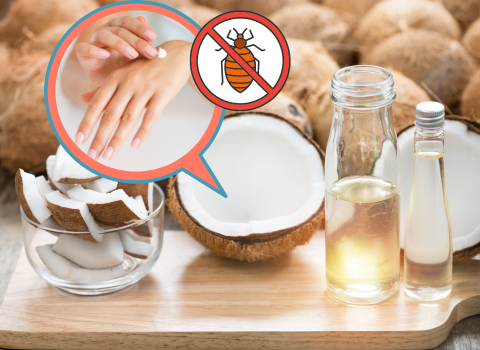
How to Use Coconut Oil as Homemade Bed Bug Repellents
Coconut oil can be used as a natural repellent against bed bugs:
Apply the oil directly to the furniture and other surfaces in the home, taking advantage of its lauric acid and caprylic acid components.
Create a spray using essential oils mixed with coconut oil. Popular essential oils include thyme, lavender, clove, eucalyptus, and tea tree oil – just be sure not to use undiluted essential oils on any surface.
To give extra protection, add some camphor oil or neem oil to your coconut oil mixture before spraying it onto surfaces or into air conditioner ducts and ventilation systems.
By correctly applying these preventive measures it is possible to keep bed bugs away from your home; however, remember that professional pest control treatments are necessary for complete eradication.
Does Coconut Oil Help in Dealing with Bed Bug Bites?
Essential oils can be an effective tool to help repel bed bugs, but they cannot completely stop them from spreading. Popular essential oils such as eucalyptus and peppermint are often used to create a barrier around a home or furniture, thus keeping the bugs at bay. However, professional pest control services should always be considered in order to completely eradicate the problem.
Coconut oil may also help in dealing with bed bug bites. Coconut oil contains anti-inflammatory and antibacterial properties, which can reduce the pain and itching of the bites. Additionally, its moisturizing effects can help heal the skin faster. Before using coconut oil on a larger area of skin it is important to test it on a small patch first in case of any allergies or negative reactions.
How to Use Coconut Oil and Other Natural Oils for Bed Bug Bites
Finding relief from bed bug bites can be difficult, but natural oils like coconut oil may offer some relief from the discomfort and itchiness associated with them. Here are some of the many ways you can use natural oils to help keep your skin healthy and free from further irritation:
Coconut OIl
Applying a small amount of coconut oil directly onto the affected area with bed bug bites can provide a soothing sensation that reduces inflammation and prevents any further irritants from entering the body.
Jojoba Oil
Jojoba oil is rich in antioxidants which can help to repair damaged skin cells and reduce scabbing or scarring from scratching at the bite. Thus, making it another solution for bed bug bites.
Sweet Almond Oil
Sweet almond oil has anti-inflammatory properties which can help to reduce swelling while also providing hydrating properties to replenish moisture levels in the skin. This makes it another great solution for your bed bug bites.
Tea Tree Oil
Tea tree oil, with its antiseptic compounds, helps fight off germs and prevent bed bug bites from causing more serious infections.
Lavender Oil
Lavender oil can provide relief from bed bug bites with its calming and soothing properties that reduce inflammation and improve stress levels. Dilute the oil in a carrier oil, such as almond or jojoba, before applying directly to the affected area for best results.
Thyme Oil
Thyme oil is an effective remedy for bed bug bites due to its antiseptic, anti-inflammatory, and antibacterial properties. Mix a few drops of thyme essential oil with a carrier oil like coconut and apply it directly to the bite twice daily until it heals.
Clove Oil
Clove oil is a great way to reduce itching and redness caused by bed bug bites. Combine a few drops of clove essential oil with a quality carrier oil such as almond or coconut, then apply it directly to the bitten area. Leave on for at least 30 minutes before washing off, repeating this process up to three times daily for best results.
Eucalyptus Oil
Eucalyptus oil can be very beneficial in treating bed bug bites thanks to its strong antiseptic properties which help reduce pain, itching, and swelling. To use eucalyptus oil for bed bug bites, mix a few drops with a carrier oil like jojoba or coconut and apply it to the affected area. Let sit for at least 30 minutes before washing off; repeat this up to three times daily for optimal relief from symptoms.
Citronella Oil
Citronella oil can be used to help reduce the discomfort associated with bed bug bites. It has natural antibacterial and anti-inflammatory properties which can help soothe itchy skin, as well as its pleasant smell which can mask the scent of bed bugs. However, it is not known to be an effective repellent for bed bugs. If you are looking to repel bed bugs from your home, coconut oil is a more suitable option.
Peppermint Oil
Peppermint oil is often used as a natural insect repellent due to its strong scent. This makes it potentially effective in keeping bed bugs away from your home. However, the effectiveness of peppermint oil may vary depending on the severity of the bed bug infestation. If you are dealing with a large infestation, it is best to seek professional help for complete eradication.
By using these natural oils in conjunction with other home remedies like hot compresses or oatmeal baths, you may find some relief when dealing with bed bug bite symptoms. However, it is always advisable to seek professional medical advice if you think your condition is serious enough to warrant it.
Safety Concerns in Using Coconut Oil for Bed Bug Bites
When using coconut oil to treat bed bug bites, there are a few safety considerations to keep in mind. First and foremost, it is important to test the oil on a small patch of skin before applying it over a larger area.
Coconut oil can cause allergic reactions or rashes in some people, so it is best to be cautious. Additionally, when using coconut oil directly on the skin, make sure that it is diluted with water, and never apply concentrated essential oils directly on the skin.
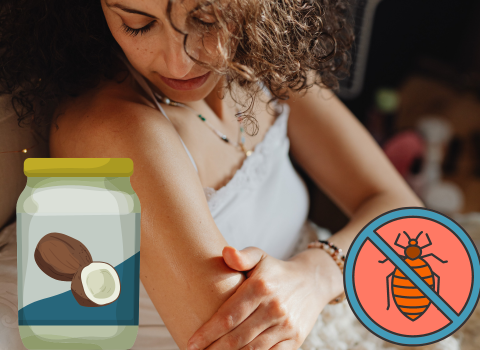
Can Essential Oils Stop Bed bugs from Spreading?
While essential oils can be effective in repelling bed bugs, they cannot completely stop them from spreading.
Essential oils such as eucalyptus and peppermint are often used to create a barrier around a home or furniture to repel bed bugs, but this is only the first step. To truly stop the spread of bed bugs, professional pest control services should always be considered.

